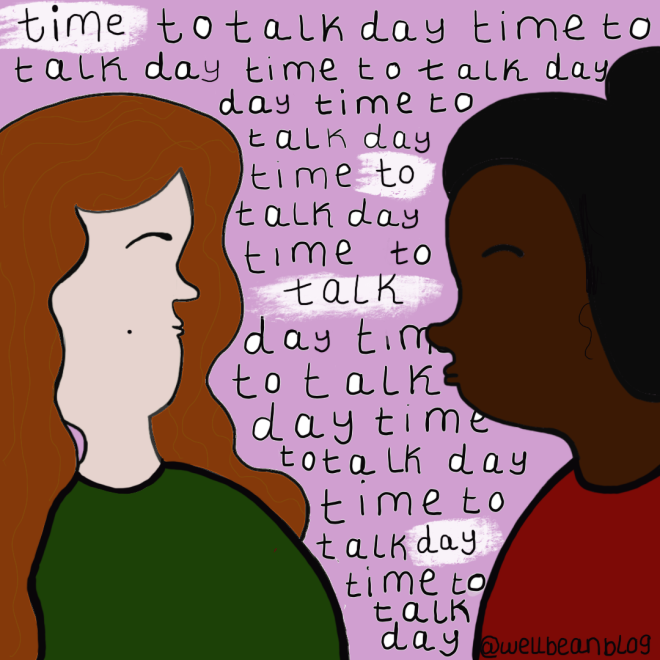The mental health charity that aims to end mental health discrimination, Time to Change, launched the Time to Talk Day campaign in 2013 to encourage meaningful conversations in workplaces, schools and family homes.
This day is literally about talking – is that all you may ask? Well, yes! That’s all you have to do, they’re not asking for money or for you to some obscure fundraising activity, they just want you to have a good old chinwag with a friend, colleague or family member.
But, how do you do this is a way that doesn’t seem to intrusive?
Thankfully there is some guidance here for you to follow:
1. Ask questions and listen
Asking questions can give the person space to express how they’re feeling and what they’re going through, and it will help you to understand their experience better. Try to ask questions that are open and not leading or judgemental – such as “how does that affect you” or “what does it feel like?”
2. Think about the time & place
Sometimes it’s easier to talk side by side rather than face to face. So, if you do talk in person, you might want to chat while you are doing something else. You could start a conversation when you’re walking, cooking or stuck in traffic. However, don’t let the search for the perfect place put you off!
3. Don’t try & fix it
It can be hard to see someone you care about having a difficult time but try to resist the urge to offer quick fixes to what they’re going through. Learning to manage or recover from a mental health problem can be a long journey, and they’ve likely already considered lots of different tools and strategies. Just talking can be really powerful, so unless they’ve asked for advice directly, it might be best just to listen.
4. Treat them the same
When someone has a mental health problem, they’re still the same person as they were before. And that means when a friend or loved one opens up about mental health, they don’t want to be treated any differently. If you want to support them, keep it simple. Do the things you’d normally do.
5. Be patient
No matter how hard you try, some people might not be ready to talk about what they’re going through. That’s ok – the fact that you’ve tried to talk to them about it may make it easier for them to open up another time.
And there are lots of things you can do to support them even if you’re not talking:
- Doing things together
- Sending a text to let them know you’re thinking of them
- Offering to help with day-to-day tasks.
So, there you are – give it go, you never know it might make you feel better!
Happy chatting!


It’s sad that this will be the last #TimeToTalk Day hosted by Time To Change. I hope their work will be taken up by others – it is too important to go by the wayside.
LikeLiked by 1 person
Yes, it’s such a shame!
LikeLiked by 1 person